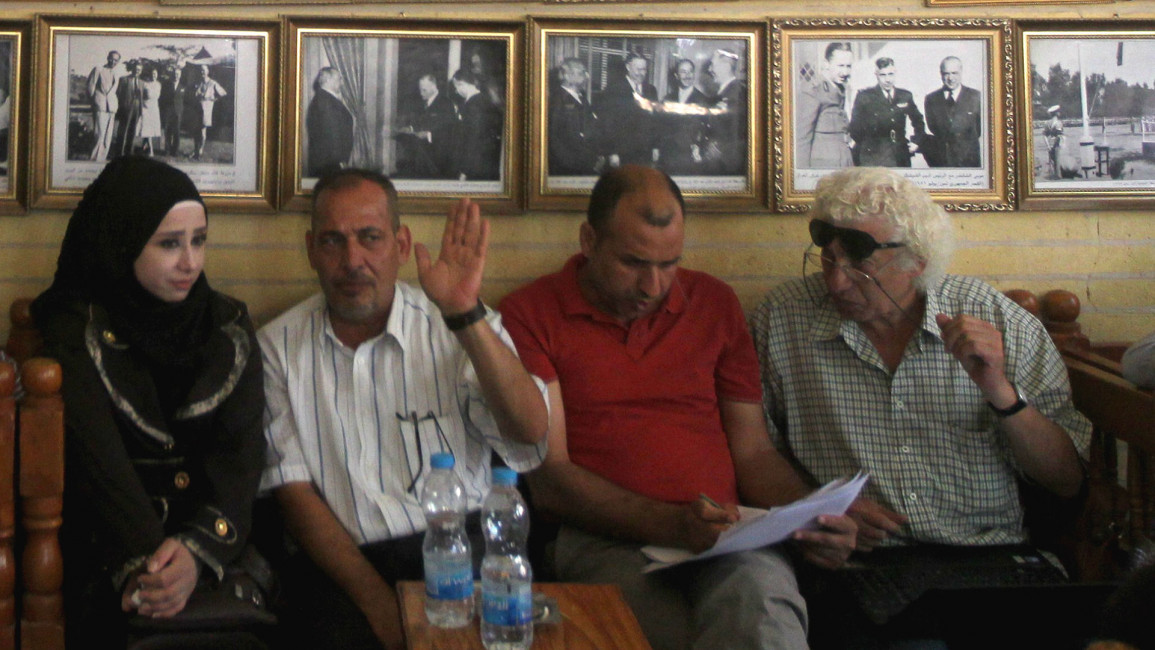
An intellectual who does not have the answer
"I do not know" is how the Saudi intellectual Turki al-Hamad responded when I asked him about the solution last week. Then he went on to say: "we are in an existential crisis and not just a cultural crisis. We cannot debate the past or be fixed in the present nor are we able to identify the future. And when we see the Islamic State group (IS) video in which it is divides captured women among its members, we feel that this [Arab] nation is finished."
I had asked Hamad about the problem of the Arab nation in relation to the events taking place within this nation at the hands of Arabs and foreigners, in which the Arabs are powerless and their actions are merely late reactions.
A horrible state of affairs
| The IS beheads people, hangs bodies on electric poles and hands out women as captive slaves, but other regimes do far worse. |
It is a truly horrid state of affairs when we watch a real television scene in which the IS plays a role that originates from history and takes us back centuries, only us to be confronted with the current Arab and religious reality. All we can do is watch the scene in disgust while ignoring other scenes that are perhaps harsher, however they have not been filmed and bragged about.
If the IS group beheads people and hangs bodies on electric poles and hands out women as captive slaves, there are other political regimes that do far worse, however they do it without the presence of cameras and media promotion. What do we do except watch the free show and feel disgusted? What else can intellectuals do?
Turki al-Hamad is not the only intellectual that does not know the solution, as all Arab intellectuals it seems share his confusion regarding what is taking place in the Arab nation. This is clear in their writings, interviews and articles of Arab intellectuals even if they are not as clear as al-Hamad who described the Arab intellectual as being lost.
However, are we being too harsh with the Arab intellectual when we demand that he or she have the solution and not be lost in this interconnected jungle of issues and problems hanging over the Arab nation?
What can the intellectual do other than think and provide theoretical solutions to those who request them, or those who can use them or those who can actually affect change, as long as the intellectual personally or as part of a group cannot affect change him or herself?
Even this shy intellectual role seems to usually come at the price of the intellectual’s life. That is why most of our free Arab intellectuals have ended up as immigrants, secluded or silent and perhaps crazy.
Those of them who want to remain within their countries and bravely play their historic and moral role usually find themselves facing two difficult choices: being coopted by power and defending its excesses against the people or firmly supporting principles and ideals, which usually causes death, imprisonment or financial ruin as the intellectual will not be allowed to work and earn.
So what is an intellectual to do? What should he choose? And how can he defend himself against our constant criticisms and attacks?
| Those who remain face a difficult choice: being coopted by power or supporting their principles and risking persecution. |
Let us assume that the intellectual were to face all these difficulties and wrote, spoke and acted, will he find anyone who would listen to him or her? Will we support and trust the intellectual? Will we try to understand what he or she is saying or will we, as usual, disagree and attack. That is if we do not denounce the intellectual as a heretic, which has become the easiest Arab means of combating intellectuals.
For my part, I will also say "I do not know".
Saadiah Mufarreh is a poet and critic, and works as arts editor of Al-Qabas daily newspaper in Kuwait. She graduated from Kuwait University in Arabic Language and Education in 1987 and has published four collections of poetry.
Opinions expressed in this article remain those of the author and do not necessarily reflect the opinions of al-Araby al-Jadeed, its editorial board or staff.
This is an edited translation from our Arabic website.




